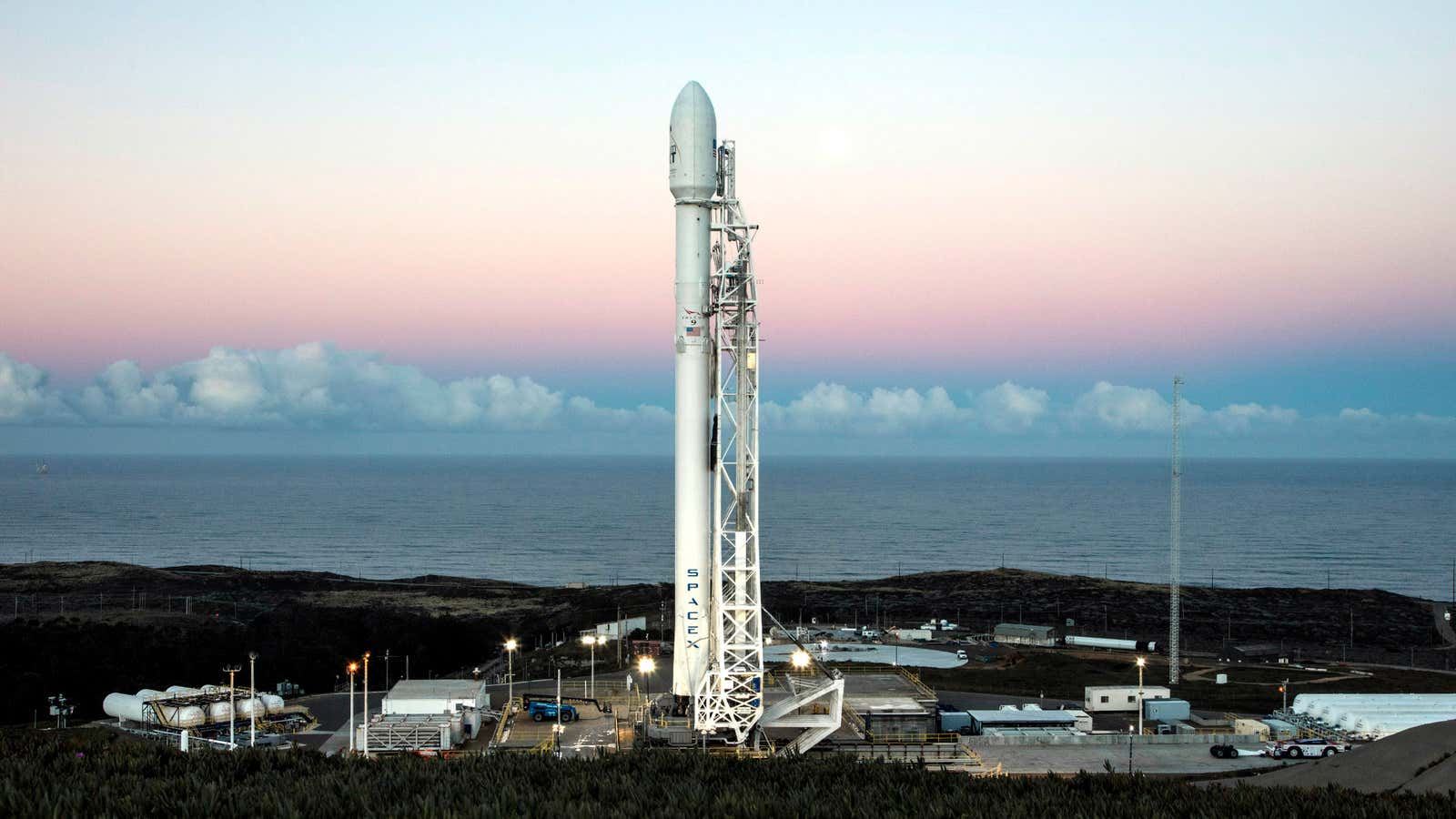The US government dropped a cool $645 million on orbital transportation service this week.
The US Air Force has announced a deal with SpaceX, Elon Musk’s rocket company, to fly three of the newest generation of Global Positioning System satellites into space, at an average cost of $97 million per flight. The service also contracted with United Launch Alliance, a joint venture of Boeing and Lockheed Martin, for two launches carrying space-surveillance satellites and some experimental hardware, at an average cost of $177 million per flight.
The price disparity between the two contracts, which both companies competed for, shows how much SpaceX can undercut the established industry on price with its Falcon 9 rocket. ULA, on the other hand, is still working to cut costs, but its Atlas V rocket has the power to launch satellites directly into high orbits over the earth that the Falcon 9 does not; when SpaceX’s workhorse sends satellites to geostationary orbit, they must use their own thrusters to reach their final destination.
SpaceX has now been tapped to launch all five of the newest generation of GPS satellites, a key accomplishment for a company that had to sue the government in order to enter the lucrative national security market. While the recent revelation of a design flaw that led to the loss of an early version of the Falcon 9 shows the difficulty of developing efficient rocket technology, yesterday’s contracts are a sign of continued confidence from the government.
Yet in the commercial world, price is king: SpaceX also announced a deal with DigitalGlobe, a satellite imaging company, to launch two new satellites in 2020, on previously-flown Falcon 9 rockets. While those prices were not disclosed, Musk has said previously that flying on a reused rocket could come with a 30% discount. SpaceX is the only company operating reusable boosters, and has flown six missions using them.
SpaceX debuted the world’s most powerful operational rocket, the Falcon Heavy, in January. The company says it expects to launch as many as forty rockets this year, an ambitious goal that would leave it singlehandedly launching more often than China or Russia. Last year, the company launched 18 rockets, a new commercial record.
